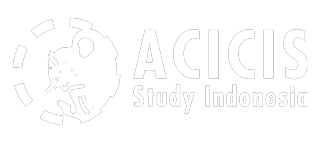About AusAid
The Australian Government’s overseas aid program is a Federal Government funded program that reduces poverty in developing countries. AusAID reports directly to the Minister for Foreign Affairs. The overall aim of Australia’s aid program to Indonesia is to serve Australia’s national interest through assisting Indonesia reduce the incidence of poverty and achieve sustainable development. AusAID’s assistance in Indonesia is primarily distributed through projects managed by contractors selected competitively using the Commonwealth Procurement Guidelines. It is a Government to Government (G to G) program, with the National Development and Planning Agency (BAPPENAS) as our main counterpart. The program uses a variety of delivery approaches including bilateral projects, the channelling of funds through United Nations agencies, International Financial Institutions (IFIs) and International Non-Government Organisations (INGOs). AusAID also directly supports local Civil Society Organisations (CSOs) and other community groups. All activities require the Indonesian Government’s endorsement. AusAID in Indonesia provides development assistance across a number of main sectors of the economy.
- Education and Scholarships
- Governance
- Human Security and Stability
- Disaster Preparedness/Risk Reduction
- Emergency Response/Humanitarian Program
- Climate Change and Environment
- Infrastructure and Regional Development
- Infrastructure and Loans
- Regional Development
- Aceh Rehabilitation
- Health
The placement with AusAID will see students placed in the section that best suits their background and interests and is contingent upon the demands of different sections at the time of the program. There is a strong likelihood of one placement being with the Education and Scholarship sections as education is the most basic building block of development, and a vital contributing factor to poverty alleviation efforts. Education develops knowledge and skills that equip people to participate fully in the economy and in society. Expanded support for basic education (primary and junior secondary) is an important element of the development cooperation strategy agreed to between the Australian and Indonesian governments. It aims to help Indonesia improve the quality and accessibility of primary and early secondary schooling in the secular system and, to some extent, in mainstream Islamic schools that form part of the state education system and teach a predominantly secular curriculum. In addition to support for basic education, Australian aid projects support improvement for the human resource development needs of Indonesia in areas of development priority through scholarships and short term training.
Requirements
Good communication and organisational skills. This position is limited to Australian and Indonesian citizens as it is based at the Australian embassy.
Intern Duties
A suggested program for the intern is one week on the design phase of a nominated project, a week on implementation and Monitoring and Evaluation (M&E), a week on performance indicators, and a final week working on policy strategy. This would give the intern a solid idea of programs across all sectors as well as providing them with experience of working with government, working with NG0s and donors, as well experience working with advisors, diplomats and local staff.
Work Hours
For embassy-based work hours are 8.00-5.00, Monday-Friday (closed on weekends and public holidays). Work hours on project sites will be determined by mentors.
Location
Australian Embassy
Jl Rasuna Said, Kav. 15-16, Kuningan
Jakarta 12940, Indonesia
